24 summer reading recommendations from around the world
Looking for some reading inspiration this summer? We asked our academic directors to share their favorite books from or about their countries. Here are their recommendations.
Africa, South of the Sahara
June 28th, 2018 | SIT Study Abroad
Barry Ferguson, Academic Director in Madagascar
Madagascar (2018) by Stephen Holgate

Ferguson says:
Madagascar, just recently published, is by Stephen Holgate, who served as a US diplomat in Madagascar. An interesting work of fiction with a strong scent of some of the realities of Madagascar. It is a story of an American diplomat’s adventures in Madagascar, with enough glimpses of reality to make the read feel like they have been transported to the island nation, but is simultaneously fast paced enough to grip the reader from the start.
Stewart Chirova, Academic Director in South Africa
I Write What I Like (1978) by Steve Biko

Chirova says:
I Write What I Like is a compilation of texts by the South African anti-apartheid leader and activist, Stephen Bantu Biko. In I Write What I Like, Biko provides tremendous insight for anyone who wishes to understand South Africa and for all those interested in social change. For those students who wish to participate more effectively participate in struggles against racial oppression, the book may help them to understand their role in struggles against this oppression. Biko adequately addresses ally-ship in his work and offers critical thinking on the role of social movements as change makers.
Felicity Kitchin, Academic Director in Tanzania
Serengeti Story (2012) by Anthony Sinclair

From Goodreads:
"First arriving in Serengeti in 1961, [Sinclair] has worked as a scientist in this ecosystem since 1965, and continues to do so today. In the process he has documented not only the ecological events as the system has changed but also the political, economic, and social events that have driven these changes. Including personal accounts of the dramatic events brought about by the vicissitudes of political turmoil, he tells the story of Serengeti and its surrounding research."
Asia and the Pacific
Peter Brennan, Academic Director in Australia
Dirt Music (2002) by Tim Winton

From Goodreads:
"Set in the dramatic landscape of Western Australia, Dirt Music is a love story about people stifled by grief and regret; a novel about the odds of breaking with the past and about the lure of music.... Ambitious, perfectly calibrated, Dirt Music resonates with suspense and supercharged emotion, and it confirms Tim Winton's status as the preeminent Australian novelist of his generation."
Ariati Wayan, Academic Director in Indonesia
This Earth of Mankind (2005) by Pramoedya Ananta Toer
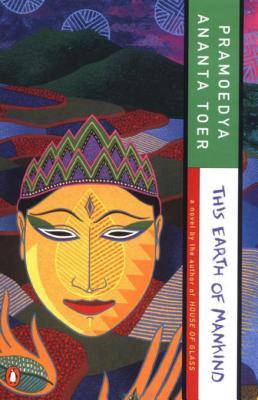
From Goodreads:
"Minke is a young Javanese student of great intelligence and ambition. Living equally among the colonists and colonized of 19th-century Java, he battles against the confines of colonial strictures. It is his love for Annelies that enables him to find the strength to embrace his world."
Ulziijargal Sanjaasuren, Academic Director in Mongolia
Genghis Khan and the Making of the Modern World (2005) by Jack Weatherford

Sanjaasuren writes:
"A book written by a former Macalaster professor, provides a startling interpretation of the Great Khaan’s history that influenced the making of the modern world. The book became a New York Times Bestseller. Despite the seriousness of the title, it is very entertaining."
Suman Pant, Academic Director in Nepal
Seasons of Flight (2010) by Manjushree Thapa

From Goodreads:
"Prema, a young woman adrift in war-torn rural Nepal, with little to bind her to her family, village and country, wins a green card in a US government lottery and emigrates to Los Angeles. In this unfamiliar metropolis she struggles to invent a life she can call her own, even as love, and sexual awakening, transform her."
Isabelle Onians, Academic Director in Nepal

Onians says:
"Kim's adventures are experiential education of the first order, his guru is none other than a Tibetan Buddhist lama, and the context is the Himalayas as well as the plains of India, modern South Asia."
Europe
Daniel Govoni, Academic Director in Iceland
Ég man þig (I Remember You) (2010) by Yrsa Sigurðardóttir

From Goodreads:
"In an isolated village in the Icelandic Westfjords, three friends set to work renovating a derelict house. But soon they realise they are not alone there — something wants them to leave, and it's making its presence felt."
Orli Fridman, Academic Director in Serbia, Bosnia, and Kosovo
The Ministry of Pain (2007) by Dubravka Ugrešić

From Goodreads:
"Having fled the violent breakup of Yugoslavia, Tanja Lucic is now a professor of literature at the University of Amsterdam, where she teaches a class filled with other young Yugoslav exiles, most of whom earn meager wages assembling leather and rubber S&M clothing at a sweatshop they call the "Ministry." Abandoning literature, Tanja encourages her students to indulge their "Yugonostalgia" in essays about their personal experiences during their homeland's cultural and physical disintegration."
Victor Tricot, Academic Director in Spain
Patria (1990) by Fernando Aramburu
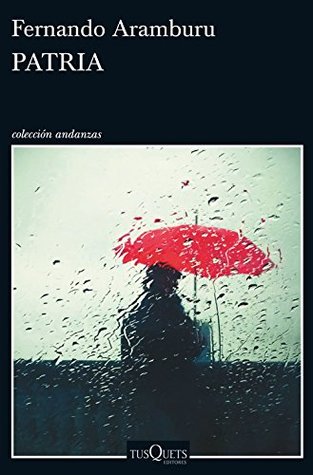
From Goodreads:
"El día en que ETA anuncia el abandono de las armas, Bittori se dirige al cementerio para contarle a la tumba de su marido el Txato, asesinado por los terroristas, que ha decidido volver a la casa donde vivieron."
Goran Jovanovic, Academic Director in Switzerland
Man in the Holocene (1979) by Max Frisch

From Goodreads:
"Frisch charts the crumbling landscape of an old man’s consciousness as he slips away from himself toward death and reintegration with the age-old history of our planet. A 'luminous parable...a masterpiece' (New York Times Book Review)."
Latin America
Ana Rita Díaz-Muñoz, Academic Director in Argentina
El Beso de la Mujer Araña (The Kiss of the Spider Woman) (1976) by Manuel Puig
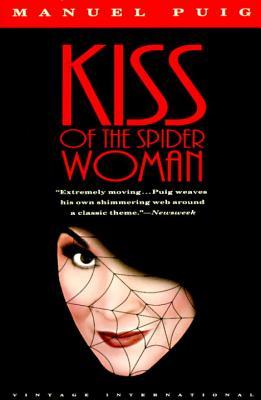
From Goodreads:
"In the still darkness of their cell, Molina re-weaves the glittering and fragile stories of the film he loves, and the cynical Valentin listens. Valentin believes in the just cause which makes all suffering bearable; Molina believes in the magic of love which makes all else endurable."
Nuria Pena, Academic Director in Argentina
La Uruguaya (2016) by Pedro Mairal
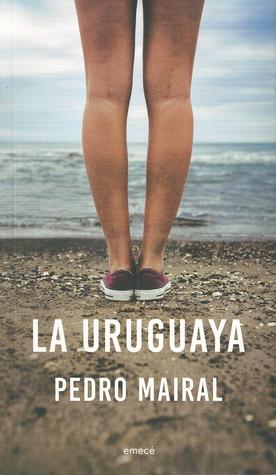
From Goodreads:
"Lucas Pereyra viaja a Uruguay en barco por el día a buscar dólares. Son tiempos de restricciones cambiarias. Tiene ya arreglado un encuentro secreto en Montevideo, pero sus planes pueden fallar."
Victor Tricot, Academic Director in Chile
Death and the Maiden (1990) by Ariel Dorfman

From Goodreads:
"Ariel Dorfman's explosively provocative, award-winning drama is set in a country that has only recently returned to democracy. Gerardo Escobar has just been chosen to head the commission that will investigate the crimes of the old regime when his car breaks down and he is picked up by the humane doctor Roberto Miranda. But in the voice of this good Samaritan, Gerardo's wife, Paulina Salas, thinks she recognizes another man — the one who raped and tortured her as she lay blindfolded in a military detention center years before."
Daniel Poblete, Interim Academic Director in Chile
La Casa de los Espíritus (The House of the Spirits) (1982) by Isabel Allende
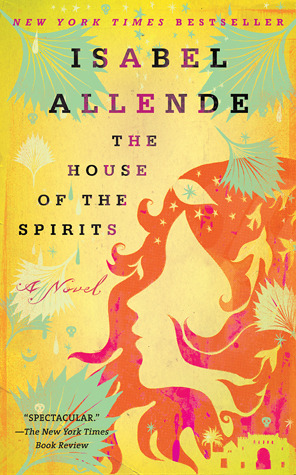
From Goodreads:
"In one of the most important and beloved Latin American works of the twentieth century, Isabel Allende weaves a luminous tapestry of three generations of the Trueba family, revealing both triumphs and tragedies."
Fabián Espinosa, Academic Director in Ecuador
The Spears of Twilight: Life and Death in the Amazon Jungle (1993) by Philippe Descola
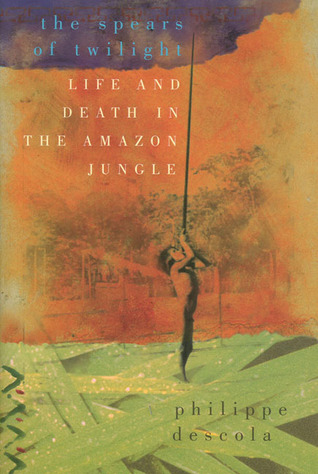
From Goodreads:
"The Spears of Twilight is the extraordinary story of three years among the legendary Jivaro Indians of South America by Philippe Descola, a student of Claude Levi-Strauss. Isolated in the jungle of the Upper Amazon on the border of Ecuador and Peru, the Achuar are a tribe of Jivaros whose reputation for headhunting has kept them safe for centuries from incursions by whites. The Spears of Twilight is the story of Descola's years among them and a tribute to their resistance."
Omar Nunez, Academic Director in Mexico
El Espejo Enterrado (1992) by Carlos Fuentes
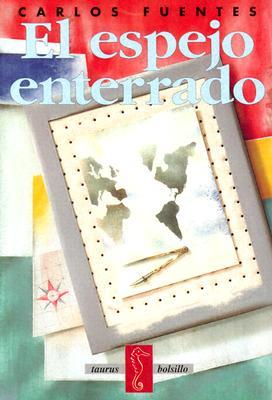
From Goodreads:
"Drawing expertly on five centuries of the cultural history of Europe and the Americas, Fuentes seeks to capture the spirit of the new, vibrant and enduring civilization (in the New World) that began in Spain."
Alyson Dagang, Academic Director in Panama
A Neotropical Companion: An Introduction to the Animals, Plants, and Ecosystems of the New World Tropics (1989) by John C. Kricher
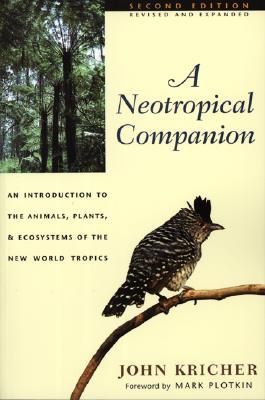
From Goodreads:
"A Neotropical Companion is an extraordinarily readable introduction to the American tropics, the lands of Central and South America, their remarkable rainforests and other ecosystems, and the creatures that live there. It is the most comprehensive one-volume guide to the Neotropics available today."
The Middle East and North Africa
Raed al Tabini, Academic Director in Jordan
Cities of Salt (1984) by Abdelrahman Munif

From Goodreads:
"Set in an unnamed Persian Gulf kingdom in the 1930s, this remarkable novel tells the story of the disruption and diaspora of a poor oasis community following the discovery of oil there. The meeting of Arabs and the Americans who, in essence, colonized the remote region is a cultural confrontation in which religion, history, superstition, and mutual incomprehension all play a part."
Ursula Lindsey, Academic Director in Morocco
Whitefly (2016) by Abdelilah Hamdouchi

From Goodreads:
"The traffickers. The drug dealers. The smugglers.
They know what it takes to get a gun into Morocco, and so does Detective Laafrit.
When a fourth corpse in three days washes up in Tangier with a bullet in the chest, Laafrit knows this isn't just another 'illegal' who didn't make it to the Spanish coast. "
Et-Tibari Bouasla, Academic Director in Morocco
A House in Fez: Building a Life in the Ancient Heart of Morocco (2008) by Suzanna Clarke

From Goodreads:
"A House in Fez is a journey into Moroccan culture, revealing its day-to-day rhythms, its customs and festivals; its history, Islam, and Sufi rituals; the lore of djinns and spirits; the vibrant life-filled market places and the irresistible Moroccan cuisine. And above all, into the lives of the people — warm, friendly, and hospitable."
Taieb Belghazi, Academic Director in Morocco
Dreams of Trespass (1994) by Fatema Mernissi

From Goodreads:
"In Dreams of Trespass, Mernissi weaves her own memories with the dreams and memories of the women who surrounded her in the courtyard of her youth — women who, deprived of access to the world outside, recreated it from sheer imagination. Dreams of Trespass is the provocative story of a girl confronting the mysteries of time and place, gender and sex in the recent Muslim world."
Mounir Khélifa, Academic Director in Tunisia
The Pillar of Salt (1953) by Albert Memmi

From Goodreads:
"Originally published in 1953 (in English in 1955), The Pillar of Salt is the semi-autobiographical novel about a young boy growing up in French colonized Tunisia. To gain access to privileged French society, he must reject his many identities — Jew, Arab, and African. But, on the eve of World War II, he is forced to come to terms with his loyalties and his past."
